All content available from the Liturgical Press website is protected by copyright and is owned or controlled by Liturgical Press.
You may print or download to a local hard disk the e-book content for your personal and non-commercial use only equal to the number of copies purchased. Each reproduction must include the title and full copyright notice as it appears in the content.
UNAUTHORIZED COPYING, REPRODUCTION, REPUBLISHING, UPLOADING, DOWNLOADING, DISTRIBUTION, POSTING, TRANSMITTING OR DUPLICATING ANY OF THE MATERIAL IS PROHIBITED.
E-ISBN: 978-0-8146-4767-7
Nihil obstat: Robert C. Harren, Censor deputatus.
Imprimatur:  John F. Kinney, Bishop of St. Cloud, Minnesota, October 17, 2006.
John F. Kinney, Bishop of St. Cloud, Minnesota, October 17, 2006.
Design by Ann Blattner.
Cover illustration: Genesis: Creation by Donald Jackson with contributions from Chris Tomlin. Copyright 2005 The Saint Johns Bible and the Hill Museum & Manuscript Library, Saint Johns University, Collegeville, Minnesota USA. Used by permission.
Scripture selections are taken from the New American Bible. Copyright 1991, 1986, 1970 by the Confraternity of Christian Doctrine, 3211 Fourth Street, NE, Washington, DC 20017-1194 and are used by license of the copyright owner. All rights reserved. No part of the New American Bible may be reproduced in any form or by any means without permission in writing from the copyright owner.
2007 by Order of Saint Benedict, Collegeville, Minnesota. All rights reserved. No part of this book may be reproduced in any form, by print, microfilm, microfiche, mechanical recording, photocopying, translation, or by any other means, known or yet unknown, for any purpose except brief quotations in reviews, without the previous written permission of Liturgical Press, Saint Johns Abbey, P.O. Box 7500, Collegeville, Minnesota 56321-7500. Printed in the United States of America.
Library of Congress Cataloging-in-Publication Data
Dawes, Gregory W.
Introduction to the Bible / Gregory W. Dawes.
p. cm. (The new Collegeville Bible commentary. Old Testament; v. 1)
ISBN-13: 978-0-8146-2835-5
ISBN-10: 0-8146-2835-4
1. BibleIntroductions. I. Title.
BS475.3.D39 2007
220.6'1dc22
2006031611
CONTENTS
ABBREVIATIONS
Books of the Bible
ActsActs of the Apostles
AmosAmos
BarBaruch
1 Chr1 Chronicles
2 Chr2 Chronicles
ColColossians
1 Cor1 Corinthians
2 Cor2 Corinthians
DanDaniel
DeutDeuteronomy
Eccl (or Qoh)Ecclesiastes
EphEphesians
EsthEsther
ExodExodus
EzekEzekiel
EzraEzra
GalGalatians
GenGenesis
HabHabakkuk
HagHaggai
HebHebrews
HosHosea
IsaIsaiah
JasJames
JdtJudith
JerJeremiah
JobJob
JoelJoel
JohnJohn
1 John1 John
2 John2 John
3 John3 John
JonahJonah
JoshJoshua
JudeJude
JudgJudges
1 Kgs1 Kings
2 Kgs2 Kings
LamLamentations
LevLeviticus
LukeLuke
1 Macc1 Maccabees
2 Macc2 Maccabees
MalMalachi
MarkMark
MattMatthew
MicMicah
NahNahum
NehNehemiah
NumNumbers
ObadObadiah
1 Pet1 Peter
2 Pet2 Peter
PhilPhilippians
PhlmPhilemon
ProvProverbs
Ps(s)Psalms
RevRevelation
RomRomans
RuthRuth
1 Sam1 Samuel
2 Sam2 Samuel
SirSirach
SongSong of Songs
1 Thess1 Thessalonians
2 Thess2 Thessalonians
1 Tim1 Timothy
2 Tim2 Timothy
TitusTitus
TobTobit
WisWisdom
ZechZechariah
ZephZephaniah
INTRODUCTION
The book we know as the Bible is not so much a single book as a library. It is a collection of books, written by different authors, at different times, and dealing with a wide range of concerns. We recognize this fact when we refer to the Bible as the Scriptures, a term that implies we are not dealing with one book but with many. Even our English word Bible was originally not a singular noun but a plural one, for it comes from the Greek term ta biblia, which means simply the books. Only very late in its history did the corresponding Latin word biblia come to be treated as a singular noun.
Imagine that you were to walk into your local public library and pick up a book entirely at random off the shelves. As you opened the book, there would be a number of questions that would immediately spring to mind. First of all, you might ask yourself, What sort of book is this? Is it a how-to book, such as a car repair manual, or a work on home decorating? Is it a work of fiction, such as a novel? Is it a history book, telling what purports to be a true story of a person or place? Or is it a textbook, setting out the fundamental ideas of some field of study?
If you were not able to answer these questions, you would hardly know what to do with the book you were holding. What use would it be to you? How could you begin to understand it? As you continued turning the pages, other questions might occur to you. You might ask, for instance, Who wrote this book? When was it written? For what purpose was it written? How is it set out? Does it, for example, tell a story with a beginning, a middle, and an end? These questions, too, would help you to understand the book better and to use it more intelligently.
Each volume in the New Collegeville Bible Commentary series will deal with one or more of the books that form the biblical library. In studying that book, it will ask precisely these questions. What sort of book is this? When was it written? By whom was it written and for what purpose? How does it organize its material and present its message? It is important to try to answer such questions if we are to read biblical books intelligently.
This volume, however, is intended as an introduction to the series as a whole. For this reason it is not devoted to any one of the biblical books; it is intended to be a guide to the library as a whole. What we will be looking at in the following pages is the history of this collection of writings and the ways in which it has been used. The questions we will be interested in are: Who founded this library? What books are found in it, and why were they selected? How has the collection developed over time? The following pages will also discuss how the library has been used over the long period of its history. What authority has been given to this particular collection of books and why? What instructions have been given for their interpretation during the long period that they have been regarded as Sacred Scripture?
In a word, this short work is intended to provide an initial orientation to the Bible for the general reader. It aims to help you read both the Bible itself and its commentaries with a sense of the contexts out of which they have come. It will therefore discuss all the matters traditionally dealt with in an introduction to the Bible. To use some technical terms, which we will come across later, it will deal with issues of the biblical text, the biblical canon, biblical authority, and biblical criticism. But rather than discussing these matters in the abstract, it will do so in a broadly historical context. It will examine the origin of the biblical writings and the ongoing story of their interpretation by reference to wider changes in the Christian community and in the society to which it belongs.
The focus of this short book will be on the Christian churches andin more recent timesthe Catholic Church. But it is important to realize that the Christians are not the only people for whom the Bible is Sacred Scripture. The first part of the Bible, which Christians call the Old Testament, is also Jewish Scripture, read and studied in the synagogue in the same way as the Christian Bible is read and studied in the churches. The Jewish Bible, otherwise known as the Hebrew Bible, is often referred to simply as

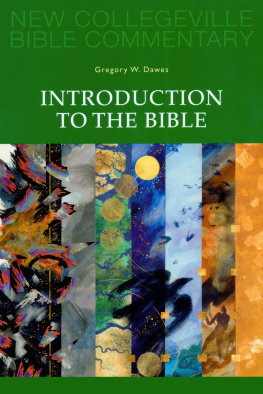

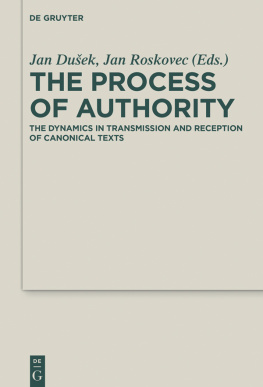

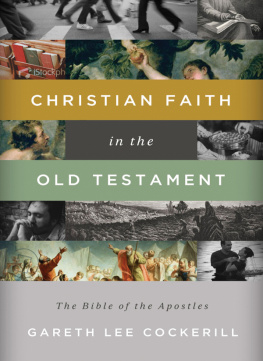

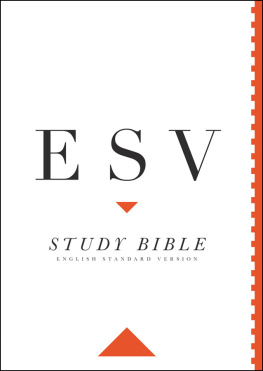
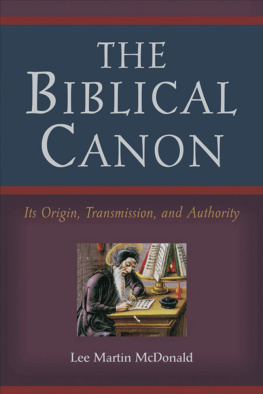
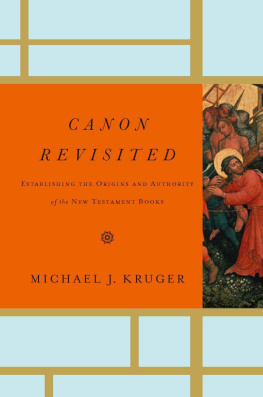
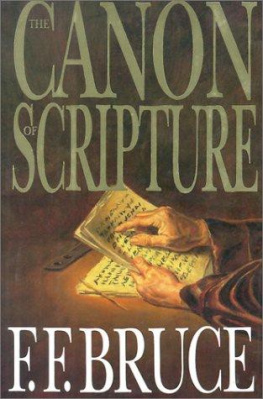

 John F. Kinney, Bishop of St. Cloud, Minnesota, October 17, 2006.
John F. Kinney, Bishop of St. Cloud, Minnesota, October 17, 2006.